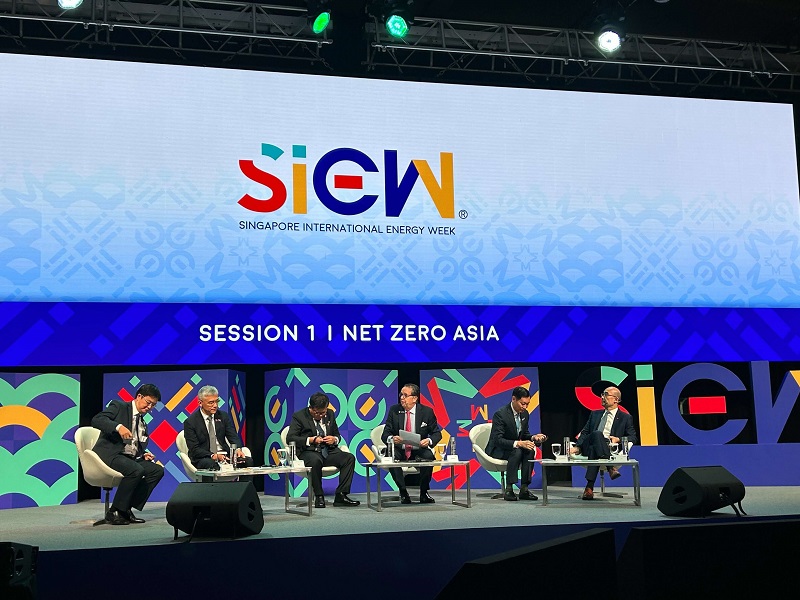Government representatives and industry experts from Australia, Cambodia, China, Indonesia and Singapore shared their strategies for achieving a net zero Asia and the importance of collaboration.

In this panel discussion on a Net Zero Asia at SIEW 2023, government leaders and private sector experts came together to discuss the critical strategies, how to close the gaps in the energy transition, and collaborations needed in the energy landscape that hold the key to a sustainable and cleaner global future.
One of the main themes that most of the panellists echoed was international collaboration and support for energy transition.
Planet first, politics second
H.E. Keo Rottanak, Minister of Mines and Energy, Kingdom of Cambodia emphasized the necessity of political consensus among nations to address gaps in achieving a net-zero future. These include political, knowledge, resource, technology, lifestyle, and financing gaps.
It's important to “focus more on the planet, and less on the political differences,” H.E. Keo Rottanak said.
Growth through collaboration and official support
Speaking in Chinese, Jin Wei, Executive Vice President, State Grid Corporation of China highlighted the importance of promoting renewable energy development in Asian countries, enhancing renewable energy infrastructure and utilisation, and decarbonising the transport sector.
He talked about the need for diversified energy sources and energy storage systems to build a solid foundation for a sustainable energy supply. He also discussed the imperative to accelerate the energy transition and expand power systems, mentioning innovative technologies like maritime wind power.
All these require government support, regulatory policies, and service guarantees.
Cross-sector collaborations and agreements
Lim Wee Seng, Group Head of Energy, Renewables and Infrastructure, DBS Bank, highlighted the need for greater collaboration between the public and private sectors.
As global power consumption increases, he believes the public sector should play a more substantial role in enabling energy projects and regulatory approvals, particularly in the case of large renewable power infrastructure projects. He also said that “the easy day was yesterday” and questioned if it may be time to privatise the grid.
He also suggested the use of transition credits to close coal-fired power plants early, ahead of their Power Purchase Agreements (PPA) timeline.
Different seats, same goal
Though each panellist is vastly different from the other in terms of countries and roles, they collectively underscored the significance of international cooperation, diversified energy sources, and collaborative regulatory frameworks to facilitate a smooth transition to cleaner energy.
At the end of the panel session, The Hon. Chris Bowen MP, Minister for Climate Change and Energy, Australia (Federal) addressed the floor to drive this message home: the Australian government has committed more than A$40 billion to Australia’s energy transformation, which goes towards countries working together to build new industries and resilient clean energy supply chains to share knowledge and expertise.
As the energy transition towards a net zero world continues, it’s clear that energy transition will require a harmonious collaboration between governments, industries, and financial institutions to achieve a net zero and environmentally responsible future.
Follow us for more timely updates on X (formerly Twitter) and Telegram.